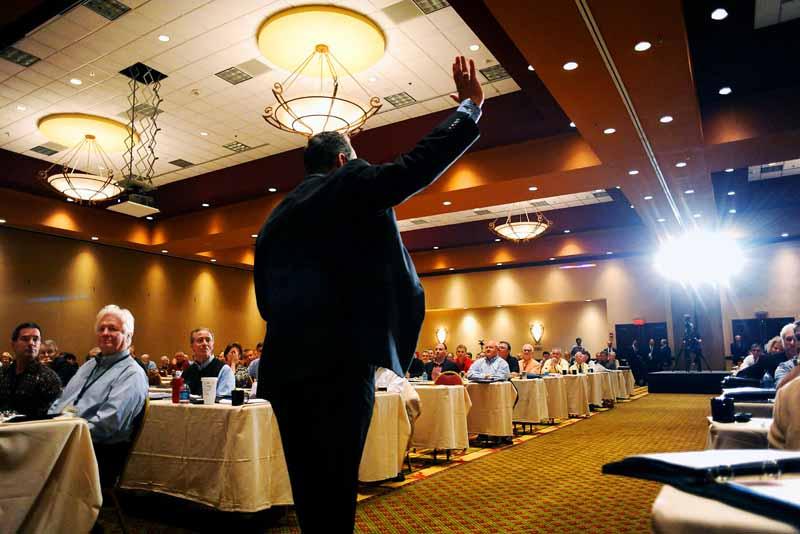Picture the scene: it’s the evening of the event. The lights dim, all the sound cues match up, the speaker is presenting, and everyone is engaged and having a great time. It’s always this way right? Well, no! Not unless you take the right planning and organisational steps long before the night itself. Whether you plan dozens of events a year and consider yourself an expert, or you just happen to be the person in the company who’s got the task this time, it can be a lot of work! On the other hand, the feeling you get from executing a successful event after months of hard word is indescribably rewarding. So let’s dive into the basics of planning a successful event, and how you can prepare for the worst-case scenario, while looking smooth and polished, and pulling off a truly successful business event.
Pinpoint Your Purpose
Before you even think about booking a space or a speaker, you need to pinpoint exactly why the event’s being held. Is it to generate new sales? Showcase a brand new product? Attract new employees? Whatever the reason for planning an event for your business, it should be clearly communicated – both to those attending the event and to all representatives of your business may be the employees or the CEO. By communicating this clearly you’ll be able to focus everyone’s efforts on achieving your goal. You should also let the people who will help put on your event on the day itself know why it’s happening, so they’re prepared to help you reach that goal.
Put Pen to Paper
Once you’ve honed in on the why of your event, it’s time to plan the how.
Planning a successful corporate event is great if you’re naturally detail-orientated, as you’ll need to keep track of the venue, food, entertainment, guest list – and those are just the big four! But even if you’re more of a big-picture person don’t fret! Take the time to put together a plan that you’ll be able to use to guide your decisions before, during and after your event.

There are two advantages to having a written plan: it makes delegating event responsibilities easier, and it helps you keep an eye on event expenses and trying to prevent the typical snowball of costs. Decide what you want to happen at your event and then write down the steps it takes to get there. You can also use this as an opportunity to delegate. Delegating is absolutely vital when planning an event to prevent burnout, so as you’re deciding the details of your event, also decide who will be responsible for each. When you’ve been given the task of event planning it’s easy to take on too much responsibility, so share the task out and you’re sure to have a better end product. Sometimes delegating will be a case of hiring an expert to help; for example if you’re planning an event you know will be need a marquee or other temporary outdoor structure, make sure to draft in a professional company with a great track record such as Neptunus. You can check out their range online.
What Attendees of your event don’t always realise is that a memorable event takes a lot of careful, planning, execution, and preparation so, be sure to consider this for your next event.
Bài viết liên quan
The Unchallenged Dominance of Television Throughout The Ages
A house becomes home when there is a family in it. The home becomes joyful when there is a...
How to Find a Good Prank Idea?
Fun with friends never ends and in order to further increase this fun, you can always play some pranks....
The Benefits of Using Crowd Funding As a Source of Movie Funding
Crowd funding has really taken off in the last couple of years and it is a great way for...
How to Find a Good Prank Idea?
Fun with friends never ends and in order to further increase this fun, you can always play some pranks....
When you come to the topic of a dinosaur party, you need to understand that we are not talking...
Raise the Bar for Corporate Events
Corporate events are a great way to celebrate with clients, customers and employees alike. A great corporate sponsored social...